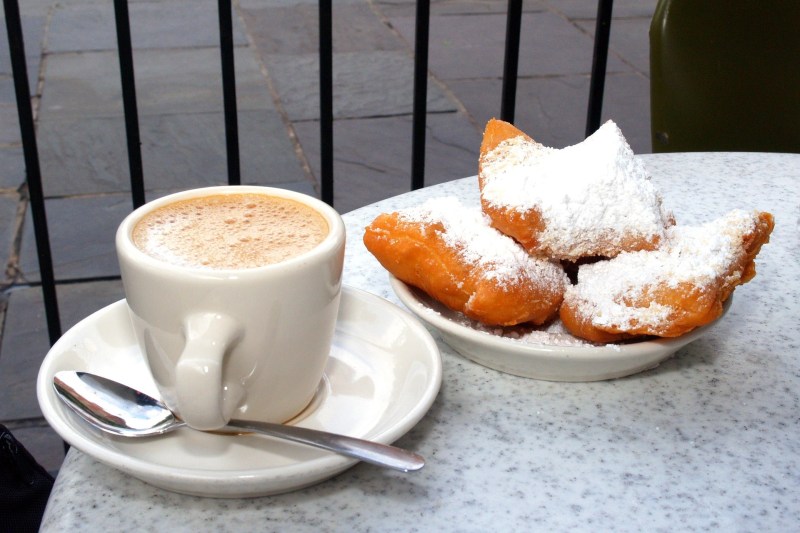Sip after sip, cup after cup, it’s easy to get carried away sipping on your favorite brew throughout the day. The casual coffee drinker may start with just one cup per day, which can slowly turn into three or four cups once you crave the unique flavor or the caffeine jolt coffee offers. Soon, this can make you ask, “How much coffee is too much?” At the same time, several studies boast the health benefits of coffee and suggest that drinking coffee may even be good for you.
Alas, finding the line between too much coffee and just enough coffee can be challenging to identify. How many cups can you safely consume before your coffee habits become questionable? Is there a limit that is universal to everyone? Here’s what you need to know about moderating your coffee consumption.
How much coffee is too much?

According to the Food and Drug Administration recommendation, most healthy adults can safely consume up to 400 mg of caffeine daily. For reference, this equals about four cups of regular coffee, each containing about 100 mg per cup. However, this blanket recommendation does not apply to those with heart conditions or taking certain medications that can interfere with caffeine.
Four cups of coffee seems like more than enough for one day. However, the huge variety of coffee products on the market today makes it easier to exceed this limit quickly. For example, ready-to-drink coffee beverages like RISE nitro cold brew contain 180 milligrams of caffeine per can, roughly the equivalent of two cups of regular coffee.
Coffee drinkers should also consider caffeine that comes from other sources, which all factor into the 400 mg daily limit. For example, if you also consume energy drinks, pre-workout drinks, sodas, or teas, you might quickly exceed the recommended daily limit of caffeine.
Signs you’re drinking too much coffee

Tracking your caffeine consumption down to the milligram isn’t always possible, especially when grabbing coffee on the go. However, if you’re consuming too much coffee — you’ll know it. Paying attention to the signs and symptoms of excessive caffeine consumption can be your hint when it’s time to cut back.
One tell-tale sign you may be consuming too much coffee is difficulty sleeping. You might also notice you feel increasingly irritable, nervous, or anxious. These symptoms occur because caffeine acts as a central nervous system stimulant and causes your body to release adrenaline. In some people, this can cause a rapid heart rate or the “caffeine jitters.” Additionally, drinking too much coffee can wreak havoc on your heart, causing palpations and issues with blood pressure.
Another common sign you’re consuming too much coffee is frequent headaches. If you can’t make it through the day without reaching for another cup of coffee repeatedly, you may be experiencing caffeine withdrawal symptoms. To fight this, try gradually reducing your coffee consumption instead of making drastic changes too fast.
The conclusion: If you consistently notice these symptoms after having several cups per day, it’s probably time to tone down your coffee consumption.
Consuming too much decaf coffee

Usually, the question “How much coffee is too much?” is based on the potential risk of consuming too much caffeine. However, this can also lead to a secondary question about consuming too much decaf coffee. Switching to decaf or half caff coffee is a healthful option to reduce caffeine consumption. Half caff coffee contains about 40 to 50 mg of caffeine per cup, providing a slight boost of energy for your afternoon slump with about half the caffeine of a regular cup of coffee.
However, frequently, coffee drinkers may wonder if they can consume too much decaf coffee. Consuming three to five cups of decaf coffee daily is unlikely to cause any harm, but you may experience some teeth staining. Also, drinking too much coffee can cause stomach upset or interfere with your ability to consume enough water.
Caffeine sensitivity

Coffee sensitivity, or caffeine sensitivity, refers to how each person’s body responds to drinking coffee. These sensitivity limits can vary greatly from person to person, primarily due to genetic differences. While a person with normal caffeine sensitivity can safely consume up to 400 milligrams of caffeine daily, this limit may be lowered for others with extreme sensitivity. Studies have found that some people may have a gene that makes them ultra susceptible to caffeine, which means their liver takes longer than normal to process and eliminate caffeine from the body.
Ultimately, the “right” amount of coffee daily depends on your body and how it reacts to caffeine. If you’re new to coffee drinking, it may be easier to determine how it affects you. Seasoned coffee drinkers may begin not to notice the effects of overconsumption (or keep drinking right through them because coffee is so delicious). However, keeping a log or notes on how much coffee you consume, on average, can help you hone in on the right amount for your body.




